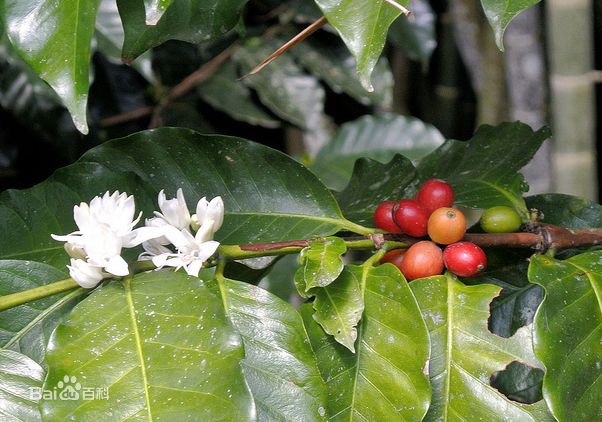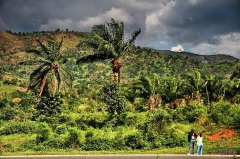Brazilian beans with mellow flavor, sweet mix beans, commercial coffee beans, raw beans, American coffee.
Brazil is the largest coffee producer in the world, and its history can be traced back to the early 17th century. Although the output of Brazilian coffee is the largest in the world, most of them are low-quality Arabica beans and Robusta coffee beans. This is because most of the Brazilian coffee grows in a low altitude, non-volcanic soil, or even a prairie with no forest shade at all. These congenital defects cannot be made up for by new farming techniques, so most people in the boutique coffee world do not have a good impression of Brazilian coffee. However, this does not mean that Brazilian coffee is unbearable. In recent years, Brazilian coffee farmers have worked hard to equate Brazilian coffee with high-quality coffee, and the country's coffee associations have also done their best to help, and their efforts have paid off. the prices auctioned in the coffee market are also quite beautiful. The three main coffee producing areas in Brazil are Bahia, Minas Gerais and Sao Paulo, but most of the best Brazilian beans come from Minas Gerais, and the most famous Hirado is a small producing area in Minas Gerais. As for Santos,
(Santos) is the largest and oldest coffee export port in the bar, and beans marked Santos may come from anywhere in Brazil, so it is not a useful regional or grade indicator. Ordinary Brazilian coffee beans not only have a poor appearance and uneven size, but the important thing is that the taste is very mediocre and undistinctive, and some of them have an unpleasant smell of iodine. Good Brazilian beans come from old coffee trees grown in Bourbon. They smell like stone fruit, taste sweet and low acidity, have the bittersweet taste of chocolate, and some people use the term "extremely smooth and smooth" (Strictly Soft) to describe top Brazilian coffee. Brazil beans have always been an indispensable ingredient in Espresso recipes because they are rich in oil. Good Brazilian beans have mellow, flavor and sweetness, but they do not capture the flavor, providing the best stage for other coffee to enjoy.

Important Notice :
前街咖啡 FrontStreet Coffee has moved to new addredd:
FrontStreet Coffee Address: 315,Donghua East Road,GuangZhou
Tel:020 38364473
- Prev

Elegant em-18 (imitation s) price Italian coffee machine Italian blend of bean milk coffee foam
Vibrating pump boiler: 300ml professional handle 58mm powder bowl because the appearance and design imitate the foreign very successful household semi-automatic machine Lanchio silvia, so it is generally called imitation s, about 1600 yuan can be won on Taobao, because of its high performance-to-price ratio, it is very popular among novices in the coffee forum. Its boiler is not big either, 300ml, but under the troubles of many friends in the forum, when
- Next

Nicaragua SHG boutique coffee beans the most classic flavor of coffee from Matagalpa, Central America.
Like most Central American coffee-producing countries, Nicaragua grows very well, with most high-end coffee beans coming from high-altitude estates, and these beans represent SHG grade (Strictly High Grown). Most of Nicaragua grows traditional coffee varieties, such as Tibica, bourbon, National Treasure Coffee, etc., as well as some Caturra coffee trees.
Related
- What documents do you need to go through to open a coffee shop? coffee shop coffee shop certificate processing process
- How to purchase Coffee beans in small Cafe how to choose a suitable supplier for domestic Coffee supply Company
- How to drink Starbucks Fragrance White Coffee? how to make Australian White Coffee? what Italian coffee beans are recommended?
- The Story of Flora Coffee: the name of Flora Coffee Bean and the implication of the Flowers on Florna Coffee
- How much does a cup of coffee cost? How much is the profit of a cup of coffee? What is the profit of the coffee shop in a year?
- Yunnan small Coffee, known as "fragrant Coffee", introduces the characteristics of Alpine Arabica Coffee producing areas in Yunnan, China
- 2023 latest Starbucks full menu price list how much is a cup of Starbucks coffee what is better to drink the most popular hot and cold drinks recommended
- Starbucks different kinds of Coffee Price list Starbucks menu 2023 Top Ten Best drinks in Starbucks
- Starbucks Spring praise Comprehensive matching Coffee Bean theme Story Packaging implication and taste description
- The cost of a cup of coffee latte American coffee cost price and selling price

